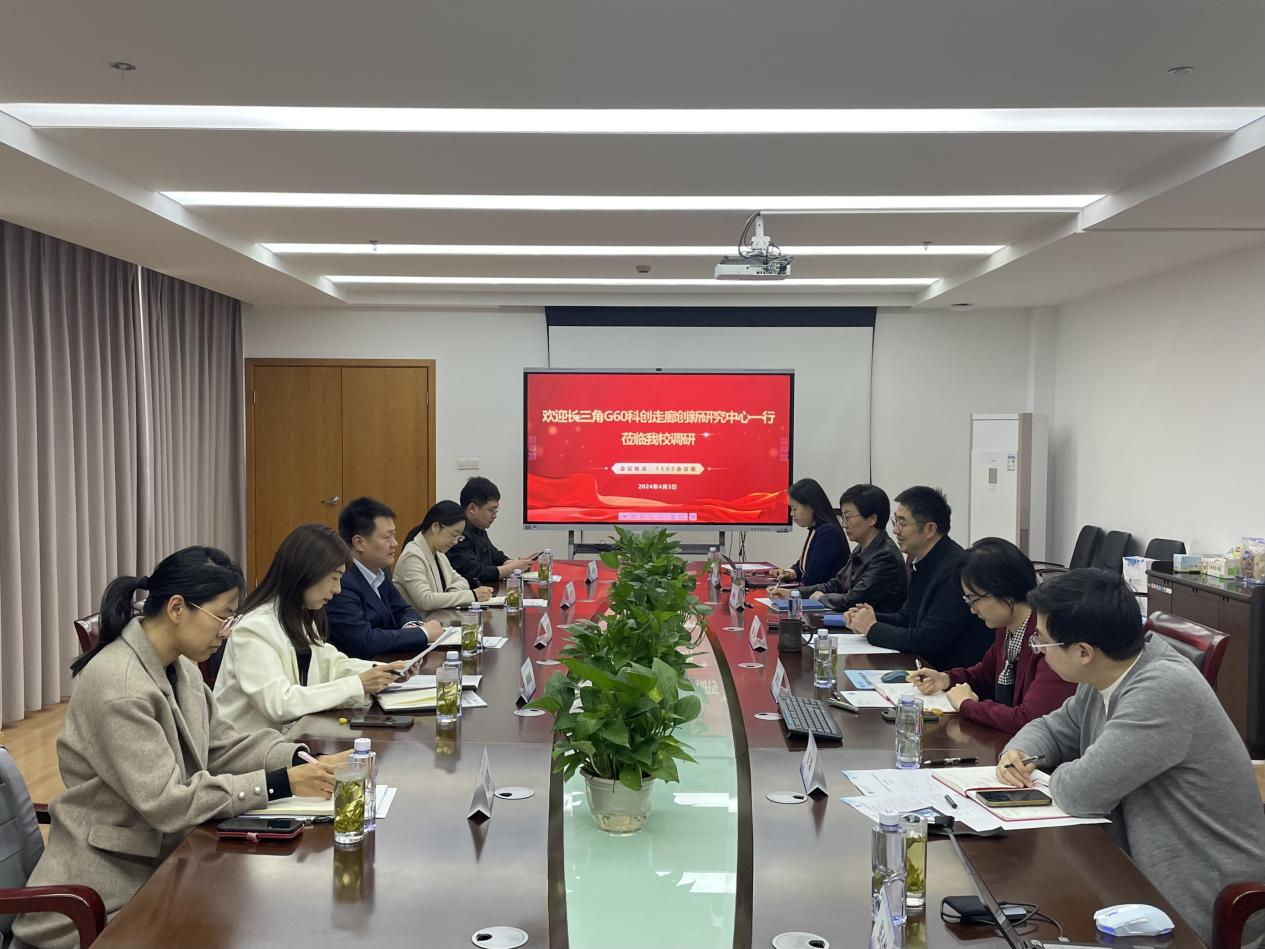On April 4th, a delegation led by Jia Zhanfeng, Deputy Director of the G60 Joint Conference Office and Director of S&T Innovation Corridor of Yangtze River Delta, visited our university. They received a warm welcome from Chen Wei, who presided over the meeting as the Secretary of the Party Branch of the College of International Education (SBS), Vice Dean of the College of International Education (SBS), Deputy Director of the MOFCOM Training Base (Shanghai). The discussions focused on enhancing communication and sharing resources, especially in the context of national strategies such as the "Belt and Road Initiative" and "Integration of the Yangtze River Delta".

During the meeting, Jia Zhanfeng described the development process and planning of the Yangtze River Delta G60 Science and Technology Innovation Corridor. He highlighted the corridor's role in supporting national strategies, driving the advancement of the Shanghai Technology Innovation Center and fostering the integrated development of the Yangtze River Delta. Under the strategy of regional coordinated development, the corridor collaborates with nine cities within the Yangtze River Delta to create an internationally competitive advanced manufacturing cluster with world-class scientific, technological, and industrial capabilities. The corridor, rich in innovation resources, has expressed a willingness to share resources and facilitate information exchange with Shanghai Business School, aiming for mutually beneficial cooperation.
Chen Wei outlined the focal themes and areas of the MOFCOM Training Base’s foreign aid training initiatives. Leveraging Shanghai's geographical advantages and the strategic "Five Centers" framework, the base aims to deeply implement the "Belt and Road Initiative's" principles of policy coordination and people-to-people bonds, committing to enhance multilateral and bilateral exchanges, share China’s story, and amplify its voice globally. Echoing President Xi Jinping’s emphasis on strengthening international communications, Chen highlighted technological innovation as a key force behind China's industrial development and economic surge. By sharing China's vision, experiences, and achievements in science and technology innovation, the base seeks to present a more comprehensive and multidimensional image of China to foreign officials and the global community.
During the meeting, both parties reached a preliminary consensus on cooperation in several key areas, such as signing agreements for the foreign aid training practice base, visiting industrial parks, and facilitating business engagements.
Written by: Zhang Xinyve
Photos by: Zhang Xinyve
Reviewed by: Chen Wei